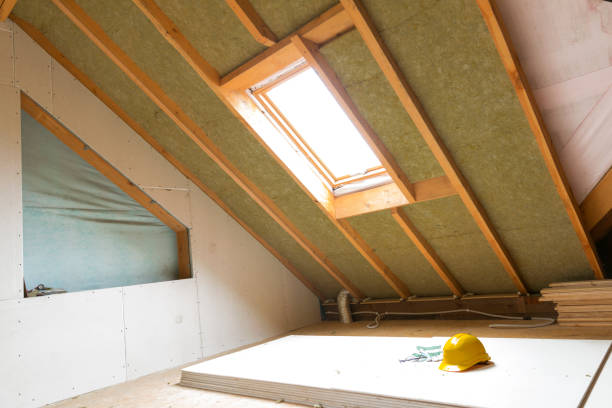Your Cart is Empty

What is Warm Roof Insulation?
Warm roof insulation, the unsung hero of a building's thermal performance, is installed above the roof deck but below the waterproofing layer. This method ensures the entire roof structure remains within the insulated envelope, preventing heat loss and condensation. Due to its efficiency and effectiveness, it is the top choice for both residential and commercial buildings.
Common Types of Warm Roof Insulation
Polyisocyanurate, or PIR, is one of the most widely used types ofwarm roof insulation. PIR boards are known for their excellent thermal performance, making them a highly efficient option. They are lightweight, easy to handle, and provide high fire resistance.
Benefits of PIR Insulation:
Extruded polystyrene (XPS) insulation is another popular choice for warm roofs. XPS boards are durable, water-resistant, and provide good thermal insulation. They are particularly suited for areas with high moisture levels, such as flat roofs.
Benefits of XPS Insulation:
Expanded polystyrene (EPS) insulation is a versatile and cost-effective option for warm roof insulation. EPS boards are lightweight, easy to install, and offer good thermal performance. They are also adaptable for various roofing applications, allowing you to use them in different parts of your building.
Benefits of EPS Insulation:
Mineral wool insulation, or rock or stone wool, is a natural and environmentally safe option for warm roofs. Made from volcanic rock and other natural materials, it has excellent thermal and acoustic insulation.
Benefits of Mineral Wool Insulation:
Cellular glass insulation is a high-performance material known for its durability and excellent thermal properties. It is made from recycled glass and offers a range of benefits for warm roof applications.
Benefits of Cellular Glass Insulation:
Choosing the Right Insulation
When selecting the correct type of warm roof insulation, it's crucial to consider the building's specific requirements. Factors such as the building's design, location, and use, as well as your budget and environmental considerations, all play a role. Each insulation type has unique benefits; evaluating them based on your project's needs is essential. This will make you a responsible and informed decision-maker, empowering you to choose the best solution for your project.
Considerations for Selection:
Conclusion
Warm roof insulation is a vital component in ensuring the energy efficiency, comfort, and longevity of a building. You can find the perfect solution for your roofing project with various options, including PIR, XPS, EPS, mineral wool, and cellular glass insulation. Each type offers unique benefits, so carefully consider your requirements before deciding.
At Waterproofing Direct, we provide a wide range ofhigh-quality insulation products to suit your needs. Our team, with their extensive knowledge and experience, is here to help you choose the best insulation for your project. Visit our website to learn more about our products and services and feel confident in your decision.
Call to Action
For top-notch warm roof insulation solutions, trust Waterproofing Direct. Visit Waterproofing Direct today to explore our comprehensive range of insulation products and services. Let us help you get optimal thermal performance for your building.